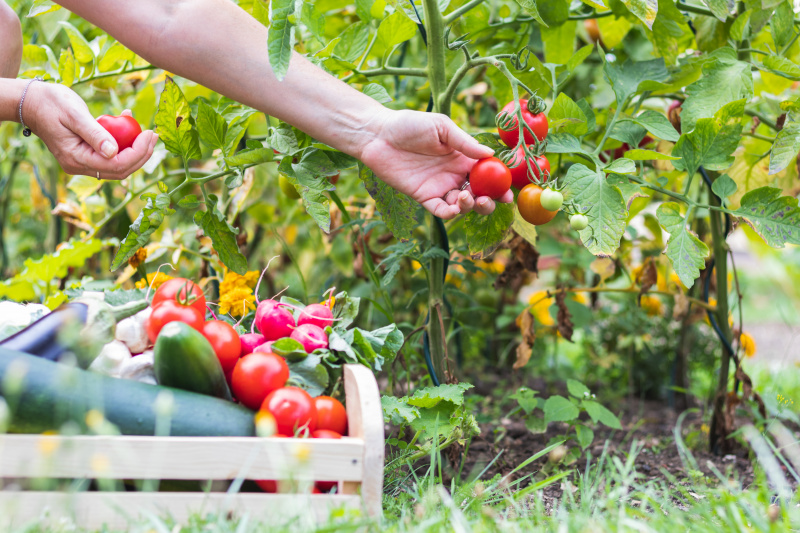A grass lawn, trees and flowers all look wonderful in a yard—if they’re properly maintained.
All that work leads to an enjoyable view, but not much else. But instead of getting little in return for their yard work, homeowners can take advantage of their land and plant vegetables and fruits that can feed them for years to come.
Here are five types of edible landscaping to consider planting in your yard:
Herbs
A bed of herbs can be as small or large as you want. Rosemary, thyme and oregano are easy to grow in a small garden bed that’s simple to build yourself, or you can plant them in pots on a patio or straight in the ground. Basil, an herb used often in Italian dishes, can grow almost anywhere.
Greens
Lettuce, radishes, carrots, cabbage, spinach, peppers, tomatoes, arugula and other salad greens can be planted in a small garden in a yard.
Leafy vegetables prefer nitrogen-rich soil, so add a lot of compost or manure before sowing seeds. Most will require regular watering and four to six hours of sun per day. If you live in a region where the temperature regularly exceeds 75 degrees Fahrenheit, grow salad greens in a shaded area so that they don’t form seeds.
Trees
Fruit and nut trees provide shade and food. Apple, peach and pear trees are common types to grow in a home’s yard.
According to the Arbor Day Foundation, the best low-maintenance fruit trees are plum, peach, pear and cherry. They don’t require aggressive watering and only require minimal fertilizer applications.
Nut trees that can be grown in a variety of locations include almond, chestnut, hazelnut, pecan, pine nut and walnut.
Vining Plants
By putting up a few decorative trellises in your yard, you can create a sitting area or entryway that’s full of edible vegetables or fruits called vining plants.
While scarlet runner beans can grow in the ground, they also look fantastic on a trellis with their red flowers climbing around it. Other kinds of vine-type beans can also be grown. Peas, squash and grapes are also excellent vining plants that can add flavor and beauty to a yard.
Edible Flowers
For the best of both worlds, plant edible flowers that are beautiful and can be turned into a salad that looks like a piece of art. Some edible flowers also work well in drinks and desserts.
Types of edible flowers include calendula, zucchini blossoms, hibiscus, lavender, nasturtiums, pansies and roses.
Don’t use flowers that have been sprayed with pesticides or other chemicals. After picking edible flowers, wash them gently in a bowl of cold water and let them dry on a paper towel. Use them immediately, or store them in the refrigerator in an airtight container lined with a damp paper towel for up to a week.


